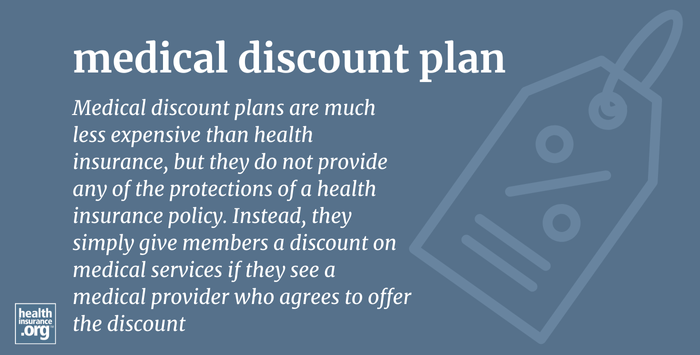
What is a medical discount plan?
Medical discount plans are much less expensive than health insurance, but they do not provide any of the protections of a health insurance policy. Instead, they simply give members a discount on medical services — as long as the member receives care from a provider who participates in the discount program.
The discounts are not guaranteed and can vary significantly depending on the provider and the treatment involved. There is no cap on out-of-pocket costs with a discount plan, and they are not regulated by the ACA; regulation is left to the states instead.
Discount plans are not suitable to be a person's only medical coverage, and they aren't necessary if you have major medical health insurance, as one of the benefits of health insurance is the built-in discount resulting from the network negotiated rates. A dental/vision discount card can still be useful in addition to regular major medical health insurance, however, as adult dental and vision services are rarely covered by health insurance plans.
Having a discount plan (if it's your only coverage) does not satisfy the shared responsibility provision. Although there is no longer a federal penalty for not having health insurance, there are still five states that impose a shared responsibility penalty for people who don't maintain coverage. In those states, relying on a discount plan would mean that you're subject to a penalty when you file your state tax return, unless you qualify for an exemption.
